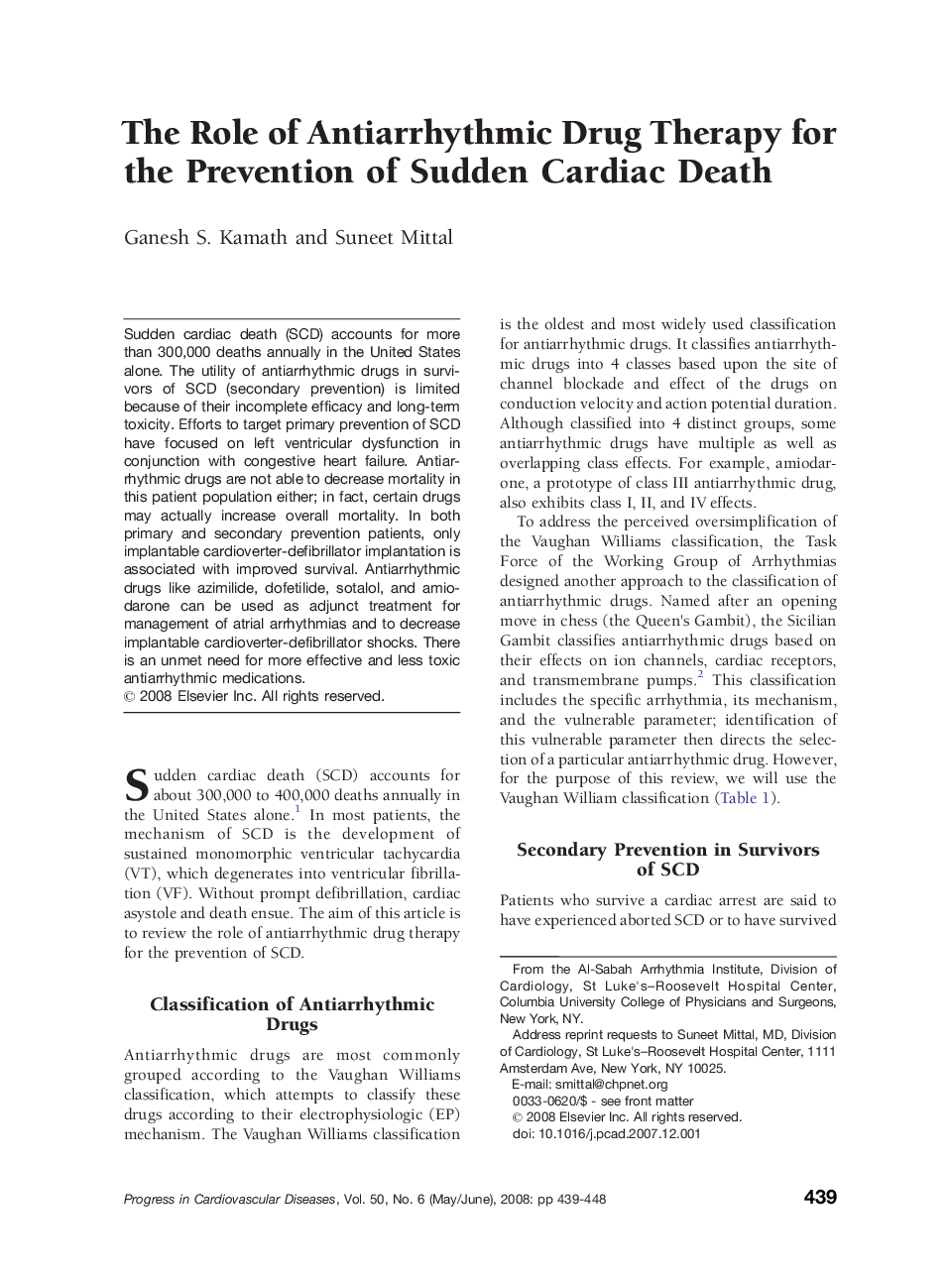| Article ID | Journal | Published Year | Pages | File Type |
|---|---|---|---|---|
| 3006795 | Progress in Cardiovascular Diseases | 2008 | 10 Pages |
Sudden cardiac death (SCD) accounts for more than 300,000 deaths annually in the United States alone. The utility of antiarrhythmic drugs in survivors of SCD (secondary prevention) is limited because of their incomplete efficacy and long-term toxicity. Efforts to target primary prevention of SCD have focused on left ventricular dysfunction in conjunction with congestive heart failure. Antiarrhythmic drugs are not able to decrease mortality in this patient population either; in fact, certain drugs may actually increase overall mortality. In both primary and secondary prevention patients, only implantable cardioverter-defibrillator implantation is associated with improved survival. Antiarrhythmic drugs like azimilide, dofetilide, sotalol, and amiodarone can be used as adjunct treatment for management of atrial arrhythmias and to decrease implantable cardioverter-defibrillator shocks. There is an unmet need for more effective and less toxic antiarrhythmic medications.
